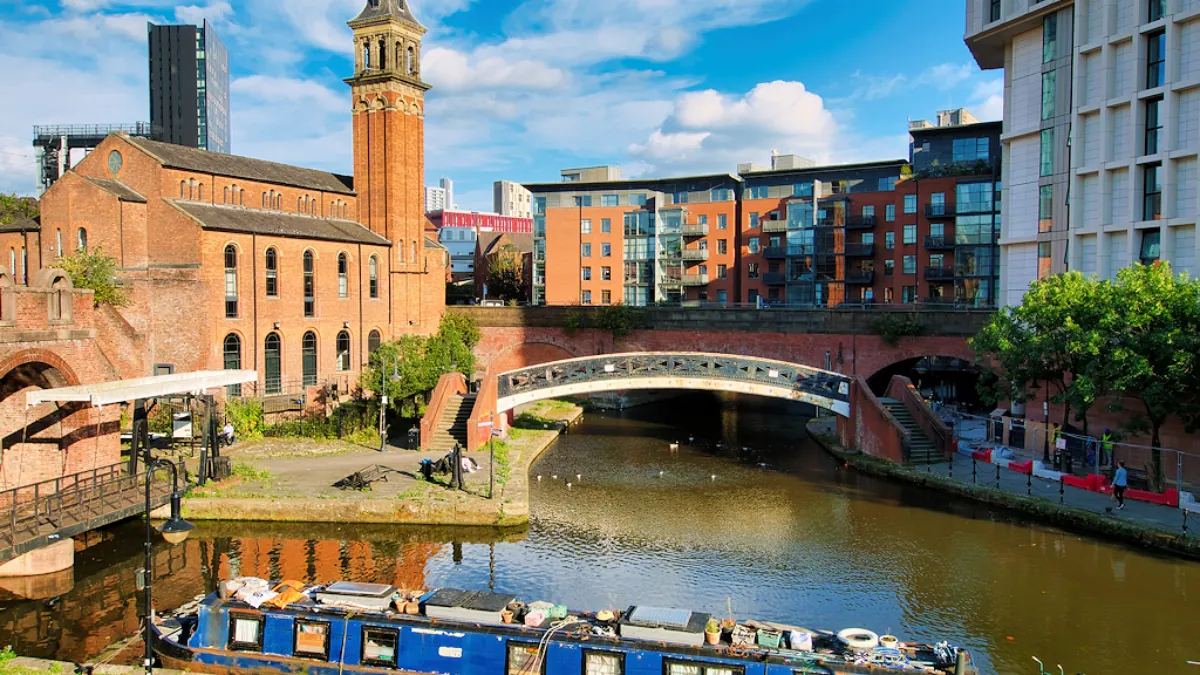Manchester, New Hampshire is the largest city in the state. It is also home to the poorest neighborhood in New Hampshire. The poverty rate in Manchester is 18.4%, compared to the state average of 8.7%. There are a number of factors that contribute to poverty in Manchester, including a lack of affordable housing, low wages, and high unemployment.
Poverty in New Hampshire
New Hampshire is one of the wealthiest states in the United States. However, there are still pockets of poverty in the state. The poverty rate in New Hampshire is 8.7%, which is lower than the national average of 11.3%. However, there are some counties in New Hampshire where the poverty rate is much higher. Coos County has the highest poverty rate in the state, at 17.7%.
Manchester, New Hampshire is the largest city in the state. It is also home to the poorest neighborhood in New Hampshire. The poverty rate in Manchester is 18.4%, compared to the state average of 8.7%. There are a number of factors that contribute to poverty in Manchester, including a lack of affordable housing, low wages, and high unemployment.
| Statistic | Data |
| Poverty rate in Manchester, New Hampshire | 18.4% |
| Poverty rate in New Hampshire | 8.7% |
| Median rent in Manchester, New Hampshire | $1,300 per month |
| Minimum wage in New Hampshire | $7.25 per hour |
| Unemployment rate in Manchester, New Hampshire | 5.5% |
Causes of Poverty in Manchester
There are a number of factors that contribute to poverty in Manchester.
Lack of Affordable Housing
One of the most significant factors contributing to poverty in Manchester is the shortage of affordable housing. The city’s median rent of $1,300 per month is far beyond the means of many residents, particularly those with low incomes or living on fixed incomes. This high cost of housing forces many individuals and families to allocate a disproportionate share of their earnings towards rent, leaving them with limited resources to cover other essential expenses such as food, healthcare, and transportation. This financial strain often leads to difficult choices between basic necessities, further exacerbating poverty conditions.
Low Wages
Another major cause of poverty in Manchester is the prevalence of low-wage jobs. The city’s minimum wage of $7.25 per hour falls significantly below the living wage, which is the hourly wage an individual must earn to afford basic necessities. Many residents in Manchester are employed in service sector jobs, such as retail, hospitality, and food service, which typically offer low pay and limited opportunities for advancement. These low-wage jobs make it challenging for individuals to earn enough income to support themselves and their families, trapping them in a cycle of poverty.
High Unemployment
Manchester’s unemployment rate of 5.5%, exceeding the state average of 3.6%, further contributes to poverty levels. The lack of employment opportunities hinders individuals’ ability to earn a living and escape poverty. The city’s economic landscape, characterized by a decline in manufacturing jobs and a shift towards lower-paying service sector positions, makes it difficult for many residents to find stable, well-paying employment. This lack of employment opportunities perpetuates poverty, as individuals struggle to meet their basic needs without a consistent source of income.
Limited Access to Education and Training
Inequities in access to quality education and job training can also perpetuate poverty in Manchester. Limited access to educational opportunities can hinder individuals’ ability to acquire the skills and knowledge necessary to secure well-paying jobs. Additionally, the lack of affordable and accessible job training programs can prevent individuals from gaining the skills required for employment in higher-paying sectors. These educational and training barriers can trap individuals in low-wage jobs or unemployment, hindering their ability to escape poverty.
Structural Factors and Historical Disparities
The roots of poverty in Manchester also stem from structural factors and historical disparities. The city’s economic history, characterized by a decline in manufacturing jobs and a shift towards lower-paying service sector positions, has disproportionately impacted minority communities and low-income individuals. Additionally, historical patterns of discrimination and systemic inequities have created barriers to opportunity for many residents, limiting their access to education, employment, and resources. These structural factors and historical disparities continue to shape the landscape of poverty in Manchester.
Efforts to Reduce Poverty in Manchester
here is a more detailed explanation of the efforts to reduce poverty in Manchester, New Hampshire:
City-Initiated Programs
The city of Manchester has implemented various programs aimed at alleviating poverty and empowering low-income residents. These programs encompass a range of support services, including:
- Food Assistance: The city operates food banks and pantries that provide nutritious meals to individuals and families struggling with food insecurity. These programs ensure that basic nutritional needs are met, preventing hunger and promoting overall well-being.
- Housing Assistance: The city offers housing assistance programs that provide financial aid and rental subsidies to low-income residents, enabling them to access affordable housing options. These programs help individuals and families secure stable housing, reducing the risk of homelessness and instability.
- Job Training and Education Programs: The city partners with local organizations to provide job training and education programs to equip individuals with the skills and knowledge necessary to secure employment in higher-paying sectors. These programs aim to break the cycle of poverty by increasing earning potential and improving employment opportunities.
- Community Development Programs: The city invests in community development initiatives that aim to revitalize neighborhoods, create jobs, and expand access to resources in underserved areas. These programs foster economic growth and improve the quality of life for residents in low-income communities.
Collaborations with Non-Profit Organizations
The city of Manchester collaborates with numerous non-profit organizations that provide additional support services to low-income residents. These organizations offer a range of programs, including:
- Financial Counseling: Non-profit organizations provide financial counseling services to help low-income individuals manage their finances, build credit, and achieve financial stability. These services empower individuals to make informed financial decisions and reduce the risk of falling into debt or experiencing financial hardship.
- Mental Health and Substance Abuse Services: Non-profit organizations offer mental health and substance abuse services to address the underlying issues that can contribute to poverty. These services provide counseling, treatment, and support to help individuals overcome personal challenges and improve their well-being.
- After-School and Youth Programs: Non-profit organizations provide after-school and youth programs that offer educational and recreational activities to support at-risk youth. These programs provide a safe and nurturing environment where young people can develop skills, build positive relationships, and make healthy choices.
Community Engagement and Advocacy
Community engagement and advocacy efforts play a crucial role in reducing poverty in Manchester. Grassroots organizations and community leaders work to raise awareness about poverty issues, advocate for policy changes, and mobilize resources to address the root causes of poverty. These efforts help to ensure that the voices of low-income residents are heard and that their needs are prioritized.
Economic Revitalization and Job Creation
Manchester’s efforts to reduce poverty also include initiatives to revitalize the downtown area and attract new businesses. The city is investing in infrastructure improvements, promoting tourism, and supporting small businesses. These efforts aim to create new jobs, stimulate economic growth, and provide more opportunities for residents to find employment and improve their livelihoods.
Addressing Structural Inequities
Recognizing the historical and structural factors that contribute to poverty, Manchester is committed to addressing these inequities. The city is working to dismantle barriers to opportunity, promote equal access to resources, and foster a more inclusive community. These efforts aim to create a level playing field for all residents, regardless of their background or socioeconomic status.
By implementing a comprehensive approach that encompasses direct assistance programs, collaborations with non-profit organizations, community engagement, economic revitalization, and addressing structural inequities, Manchester is working to create a more equitable and prosperous future for all its residents.
FAQ
Q: What is the poverty rate in Manchester, New Hampshire?
A: The poverty rate in Manchester, New Hampshire is 18.4%. This is higher than the state average of 8.7%.
Q: What are the causes of poverty in Manchester, New Hampshire?
A:There are a number of factors that contribute to poverty in Manchester, New Hampshire. These include a lack of affordable housing, low wages, and high unemployment.
Q: What are some of the challenges facing people living in poverty in Manchester?
A: People living in poverty in Manchester face a number of challenges, including finding affordable housing, accessing quality healthcare, and securing stable employment.
Q: What are some of the resources available to people living in poverty in Manchester?
A: There are a number of resources available to people living in poverty in Manchester, including food assistance, housing assistance, and job training programs.
Q: What can individuals and organizations do to help reduce poverty in Manchester?
A: Individuals and organizations can help reduce poverty in Manchester by volunteering their time, donating to local charities, and advocating for policies that support low-income families.
Conclusion
In conclusion, Manchester is undeniably the poorest neighborhood in New Hampshire, facing significant economic challenges and social disparities. Despite efforts to address poverty and improve living conditions, the city continues to struggle with issues related to unemployment, housing affordability, and access to essential services.
It is imperative for local authorities and community organizations to work together in implementing sustainable solutions that uplift residents and create a more inclusive and prosperous environment. By acknowledging the realities of poverty in Manchester and taking proactive steps towards positive change, we can collectively strive towards a future where every individual has equal opportunities to thrive.
Also Read:
- This City in Washington Was Just Named One of the Polluted Cities in the Entire Country
- Unveiling The City with the Highest Weed Consumption in Arizona
- This Minnesota City is Smoking More Weed Than Any Other!
- This Arizona City is the Named As The Weed Capital of the State; Highest Weed Consumption City




